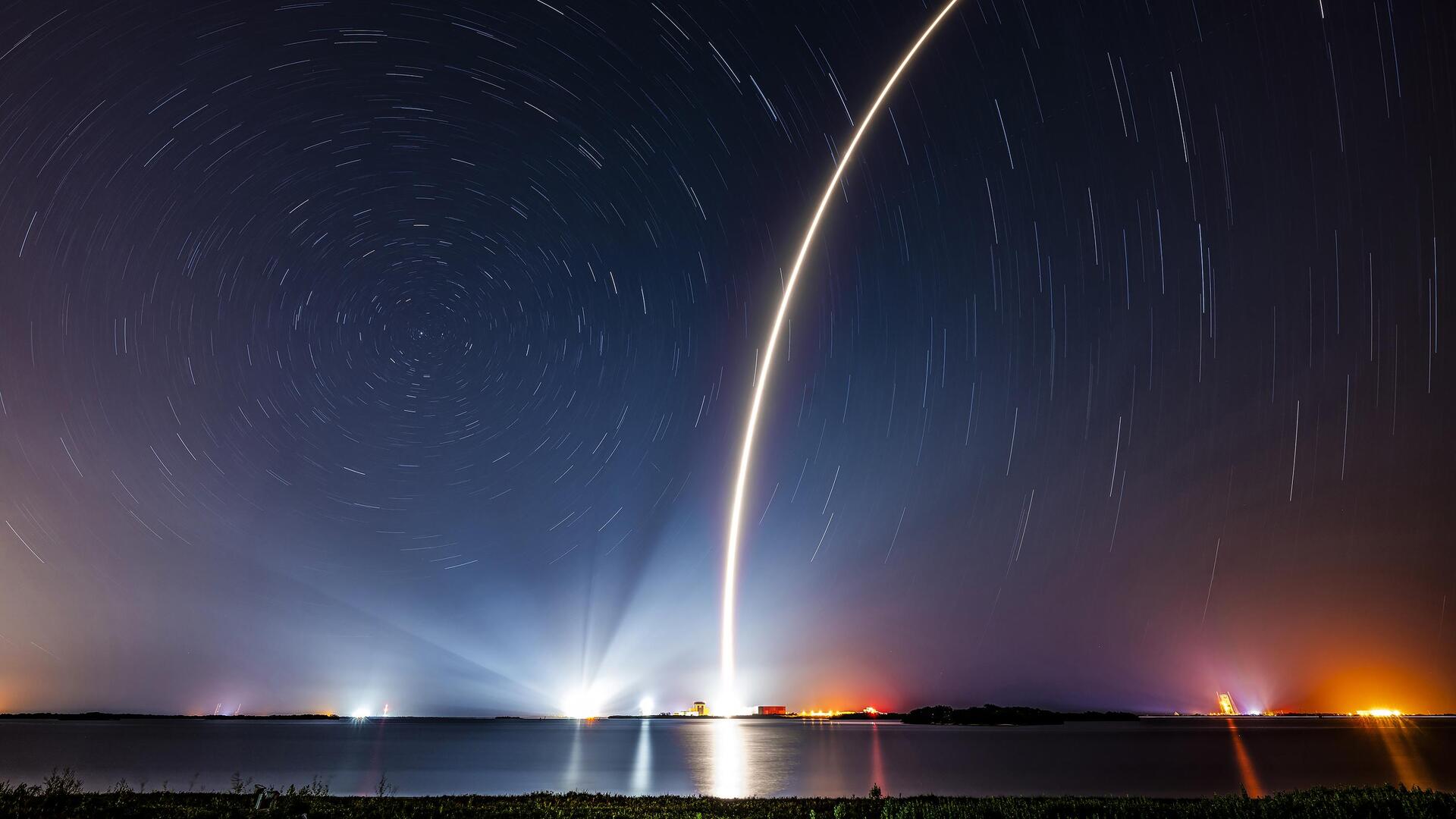
SpaceX completes 250th Starlink mission—as Amazon's rival project struggles
What's the story
SpaceX has successfully completed its 250th Starlink satellite mission, while Amazon's first internet satellite fleet, under the Project Kuiper internet constellation, has yet to take off.
The milestone was achieved with the launch of a Falcon 9 rocket carrying 23 Starlink broadband satellites from Cape Canaveral Space Force Station in Florida. Among them were 13 equipped with direct-to-cell capabilities.
The launch occurred on Sunday at 10:09pm EDT (Monday at 7:39am IST), marking another significant achievement for the Elon Musk-led company.
Rocket recovery
Falcon 9 rocket successfully returns after Starlink launch
About eight minutes after launch, the Falcon 9 rocket's first stage successfully landed vertically on SpaceX's drone ship called, "Just Read the Instructions," which was positioned in the Atlantic Ocean.
This was its 20th flight and landing, 13 of which were dedicated to Starlink missions.
The rocket's upper stage also did as expected by deploying all 23 satellites into low Earth orbit (LEO), roughly an hour after launch.
Network growth
Starlink network continues to expand
Sunday's launch marked the 48th Falcon 9 flight of 2025 and the 31st for expanding the Starlink megaconstellation. The network now includes more than 7,200 operational satellites and continues to expand.
The first dedicated Starlink launch occurred in May 2019, deploying the initial batch of 60 operational satellites, after two prototype broadband craft launches in February 2018.
Over the past nearly six years, SpaceX has launched some 8,400 Starlink satellites on these 250 missions, astrophysicist Jonathan McDowell says.
Deployment efficiency
Satellite deployment and global coverage
SpaceX has ramped up the frequency of its Starlink missions, allowing rapid expansion of its constellation.
The company has been able to cut down mission costs by reusing first-stage boosters for multiple missions and recovering/reusing rocket fairings.
Today, Starlink satellites orbit Earth, delivering high-speed broadband internet to over five million customers globally.
SpaceX plans to deploy some 12,000 satellites but has regulatory approval for a potential expansion up to 34,400 satellites.
Amazon's project
Amazon's lift-off is scheduled for today
Amazon's first internet satellite fleet is set to lift-off atop a United Launch Alliance (ULA)-built Atlas V rocket today.
After weeks of delays, the launch for the first 27 satellites of Project Kuiper is scheduled for 7:00pm EDT (4:30am IST, April 29) from Cape Canaveral Space Force Station.
The mission, dubbed Kuiper 1, marks the first of 83 planned launches for the Project Kuiper broadband constellation, which aims to deploy over 3,200 satellites to deliver high-speed internet from space.
Delays
Previous launch plan faced weather delays
Amazon previously launched two Kuiper prototype satellites in 2023 to pave the way for this mission.
ULA initially targeted April 9, 2025, for Kuiper 1 launch but faced weather delays.
It then awaited an available slot on the Eastern Range, overseen by the US Space Force. April 28 launch now has a two-hour window.
While Kuiper 1 will ride on Atlas V, future satellites will launch aboard Arianespace's Ariane 6, ULA's new Vulcan Centaur, and Blue Origin's New Glenn rockets.